As expected, Google Marketing Live 2025 was an AI love fest. Eight presenters announced more than 30 new, almost exclusively AI tools and features to help marketers create, serve, and measure their ads.
We’ll break down many of these announcements over the coming weeks, explaining how they work and what they mean for your success on Google Ads.
But for now, here’s a recap of the most important announcements from Google Marketing Live 2025, along with early reactions from PPC pros.
Contents
- Expanded ads in AIOs and AI Mode
- Power Pair becomes Power Pack
- AI Max for Search campaigns
- Channel reporting in PMax
- Smart Bidding Exploration available globally
- AI agentic tools in Google Ads and Google Analytics
- New and upgraded measurement tools
- YouTube updates for ads, creators, and conversions
- AI Mode shopping experiences
- Marketing Advisor coming to Chrome browsers
10 biggest takeaways from Google Marketing Live 2025
GML 2025 was a fast-paced presentation of the newest features in Google Ads. Here are the biggest announcements from the event.
1. Expanded ads in AIOs and AI Mode
Several announcements highlighted Google’s push for AI-powered discovery. As the GML speakers put it, the goal is to turn non-commercial intent into “ads that don’t interrupt but help your customers discover you.”
Along that theme, users will soon begin to see expanded ads in their AI Overviews that align with the educational nature of the result. This is something we’ve anticipated since the announcement of AI Overviews.
Here’s how it’ll work. Say someone searches for “how to bring small dogs on flights,” they’ll see an AIO with helpful tips and an ad for dog carriers.
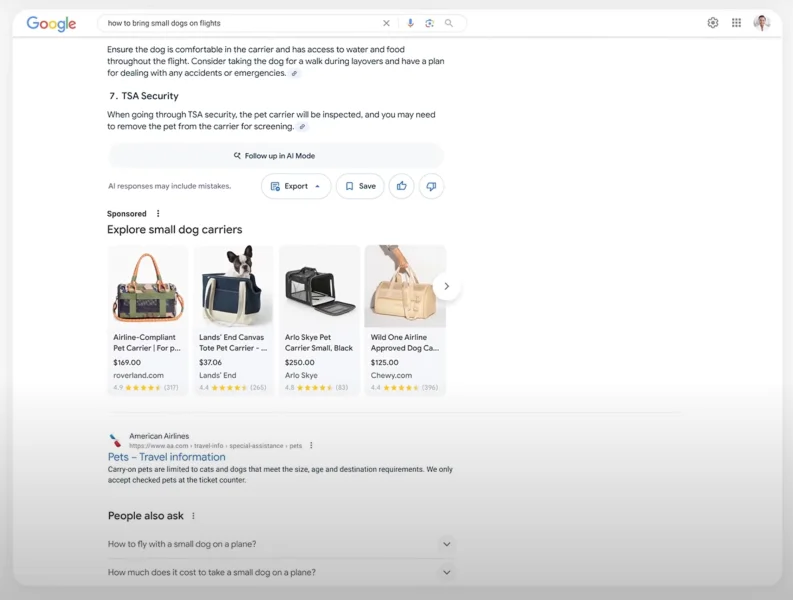
Likewise, users of Google Search’s newly released AI Mode will see ads that pull a commercial intent from an educational query and serve an ad to match it.
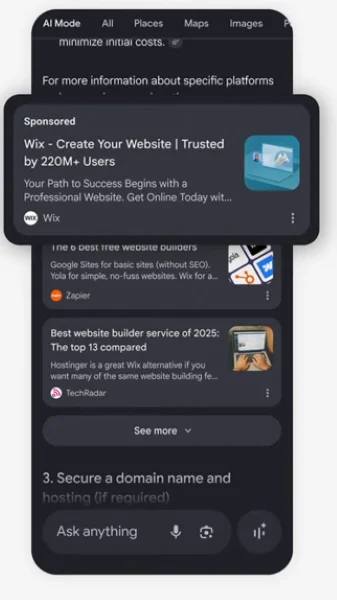
These new ad placements may be a big boon for advertisers hoping to engage customers as they use more complex search methods. But some PPC pros noted a glaring gap in the announcement: How will these new ads be tracked?
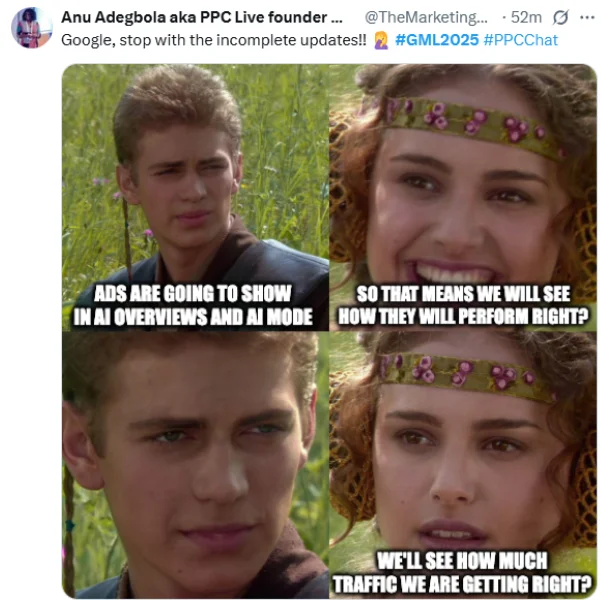
💪 Are your Google Ads competitive with the rest of your industry? Get the 2025 Google Ads Benchmarks Report and find out.
2. Power Pair becomes Power Pack
Google announced the Power Pair—the combo of AI-powered search campaigns and Performance Max—at GML 2024. This year, Google introduced its replacement, the Power Pack, which includes the trio of an upgraded Performance Max, AI Max for Search campaigns, and Demand Gen.
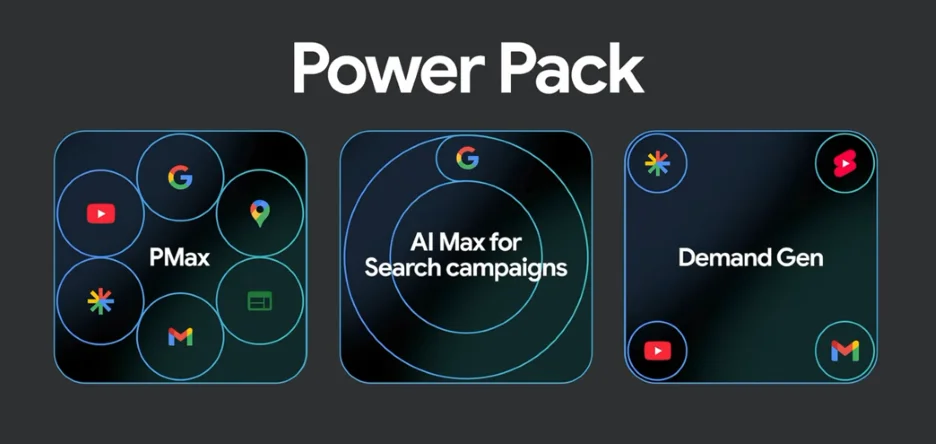
A few of the new capabilities included in the Power Pack include:
- Channel performance reporting and higher granularity reporting in Performance Max (we’ll cover this a little later).
- New targeting and creative enhancements in AI Max for Search campaigns (detailed next!).
- Upgraded Demand Gen campaigns.
The sentiment among marketers on the new Power Pack was pretty positive. Several mentioned how useful its cross-platform integration will be. Overall, there seems to be a general acceptance that AI and Google Ads are inseparable.
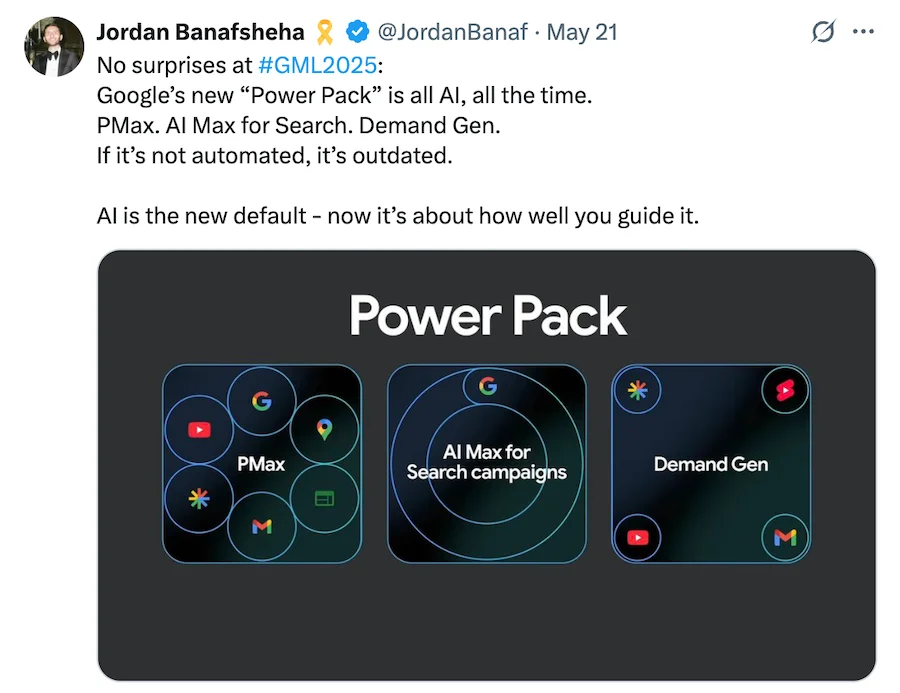
However, to be fair, not every marketer is enamored with AI’s omnipresence.
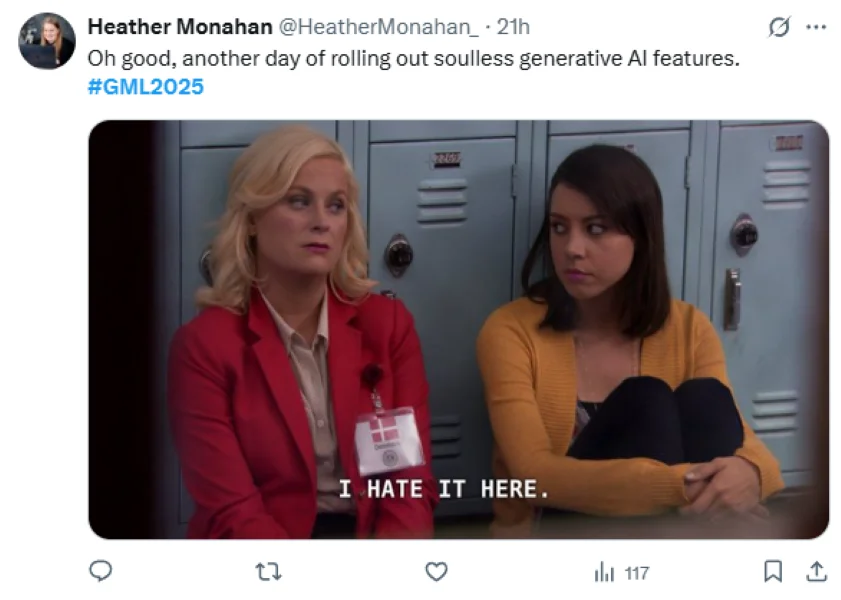
3. AI Max for Search campaigns
AI Max for Search campaigns is a collection of targeting and creative tools designed to help you address the more complex ways people search for things online. You’ll engage all AI Max tools with a single toggle.
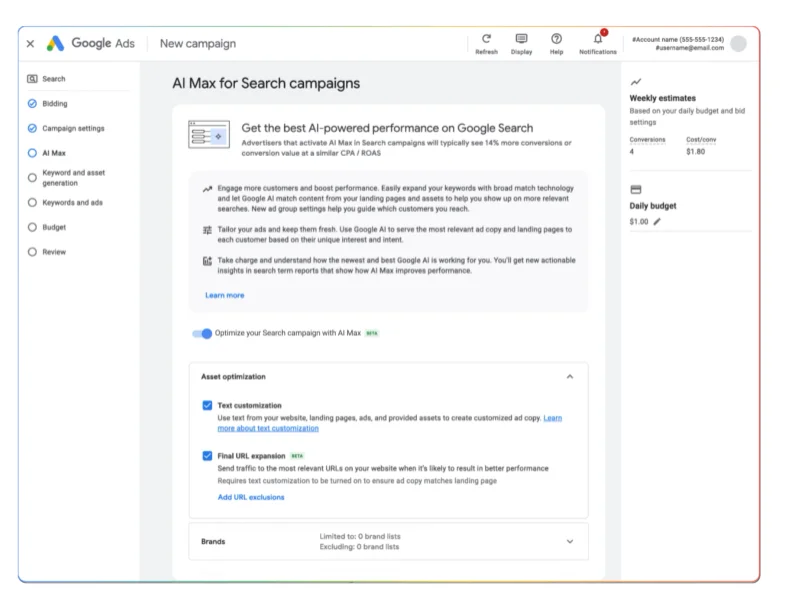
AI Max has two main feature sets to consider:
- Asset optimization: AI Max for Search will use text from your existing ads, landing page copy, and assets to adapt your headlines and descriptions on the fly and better meet the intent of a user’s query.
- Search term matching: Google AI learns from your current keywords, creatives, and URLs, then uses broad match and keywordless technology to find higher-performing queries.
AI Max for Search campaigns is due to roll out to all advertisers globally in beta by the end of May.
4. Channel reporting in PMax
You’ll soon see channel-level performance in your Performance Max campaigns.
Open your Channel performance page, and you’ll see a new data visualization that illustrates which channels your customers are engaging on and how that’s affecting your conversion goals.
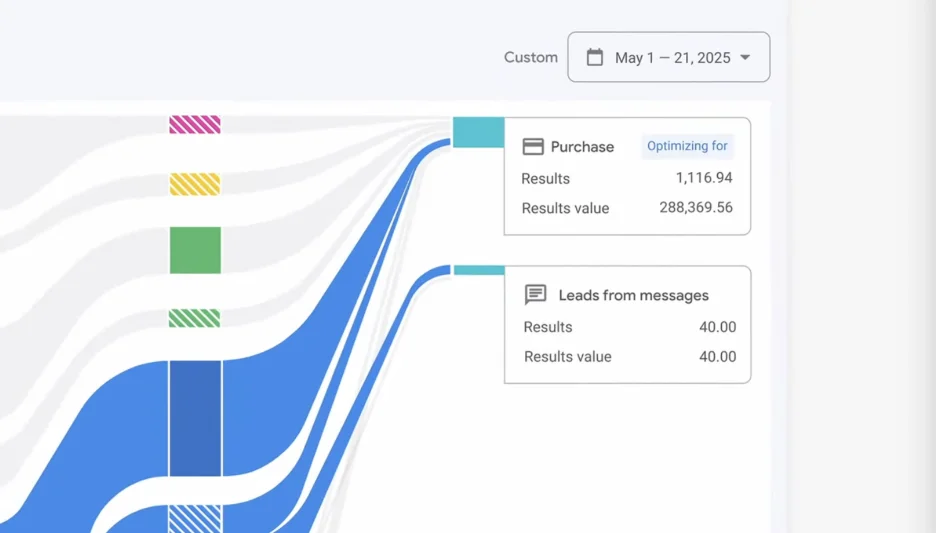
Improving attribution was a common theme during this year’s GML, which is a good step in that direction. The open beta for channel reporting in PMax will be available soon.
💸 Are you wasting money in Google Ads? Find out with our Free Google Ads Performance Grader
5. Smart Bidding Exploration available globally
Smart Bidding Exploration, which is now available globally in beta, gives you a way to access some potentially lucrative search queries you may have missed out on before. It works by using machine learning to analyze a variety of signals and predicts how likely a conversion is for each Google Ads auction. It’ll automatically adjust bids that may exceed ROAS targets but that are still within a targeted range.
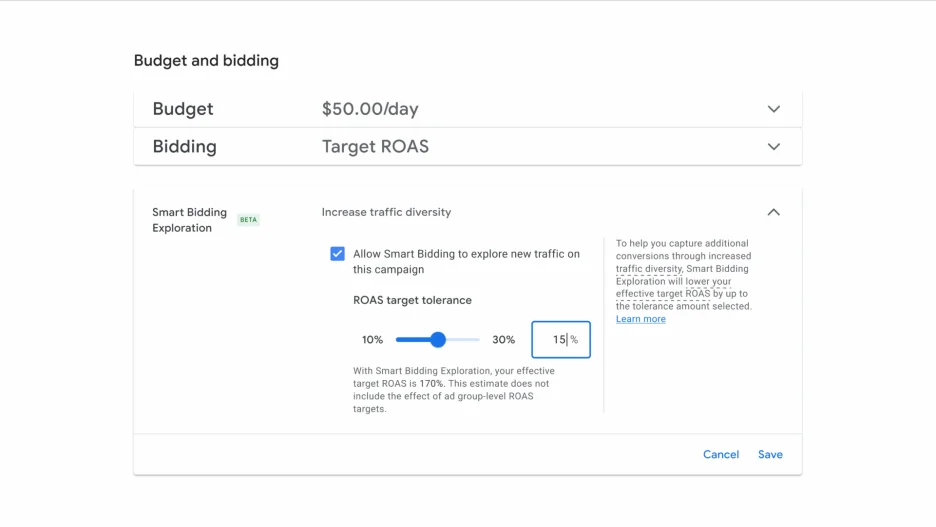
The flexibility of Smart Bidding Exploration offers less-rigid ROAS targets, which opens the door to new opportunities within existing campaigns.
6. AI agentic tools in Google Ads and Google Analytics
Conversational AI is coming to your Google Ads and Google Analytics experience. These new AI agents will act like expert marketing guides that suggest and implement ways to optimize your campaigns. They’ll learn from your performance and business data to generate reports, surface insights, and proactively find and fix problems in your Google Ads account.

This is one of the biggest leaps forward in how marketers learn from and manage their Google Ads campaigns. They’ll make setup and execution much faster and improve ad targeting and performance if Google is right.
There were plenty of announcements about AI being used to create ads, too (like turning a static image into a full-on video). Some marketers noted the landmines that these tools lay out for compliance teams.

7. New and upgraded measurement tools
Marketers constantly request more clarity for their ads, and Google answered at GML with several new and expanded analytics features.
The main measurement announcements at GML 2025 include:
- New Data Manager tools: Collect first-party data from more sources (like Salesforce, HubSpot, etc.), safely store it, and use it more effectively from a “one-stop data shop.”
- Expanded incrementality testing: One of the biggest reactions from the live audience came when Google announced it had lowered the spend threshold on its incrementality testing to $5,000. That comes with an improved testing methodology for better outcomes.
- Cross-channel measurement enhancements: Google said deeper cross-channel insights are coming to Google Analytics, including impressions, across Google and other platforms like Reddit and Pinterest.
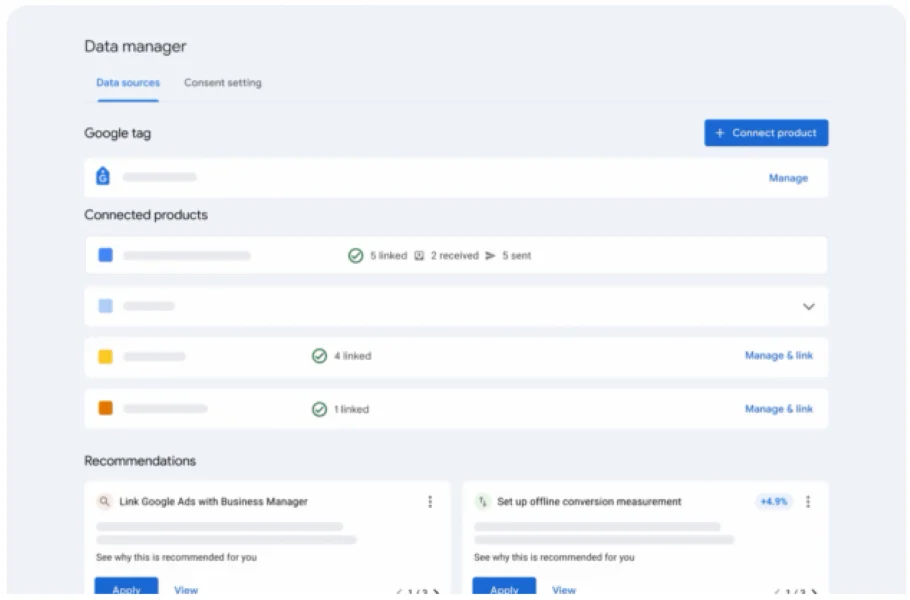
It’s no surprise that these updates took up a lot of the online chat oxygen after they were announced. The feedback was mostly cautiously optimistic, with an appreciation for new data sources but a call out for attribution from social platforms.

8. YouTube updates for ads, creators, and conversions
It seems video continues to be a bigger deal at Google. This year, YouTube advertising took up much more space than in past GML events.
Three of the most significant YouTube announcements included:
- Shoppable masthead: YouTube’s most prominent ad position is now open for interactive, shoppable ads on mobile.
- Accelerated checkout for Demand Gen YouTube ads: Redirect shoppers directly from in-stream ads to their cart or a checkout page on your website.
- YouTube creator partnership: Meet new creator partners, manage those relationships, and quickly integrate existing branded creator content into your ads.
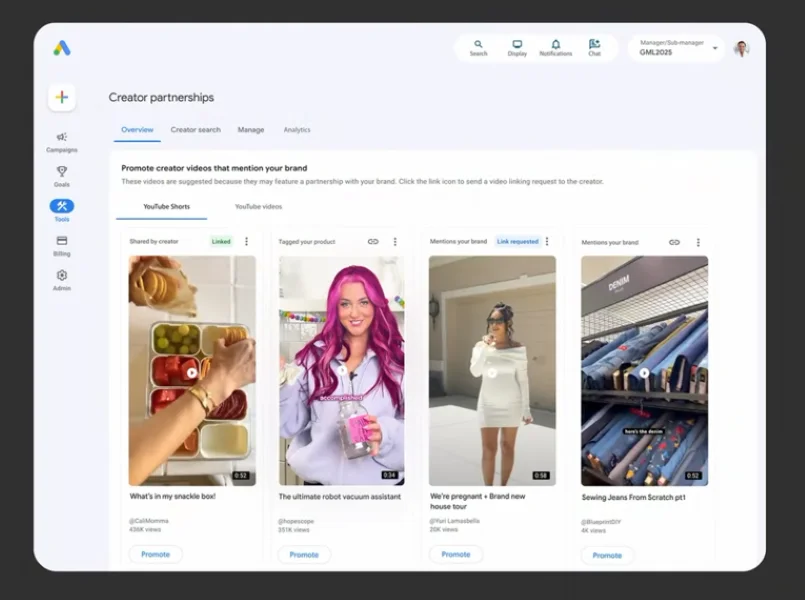
There was also an announcement about new ads on YouTube Shorts, which is a great addition for advertisers since Google says that 45% of Shorts users are not on TikTok. Put it all together, and it leads us to believe that video will be an even more important player in the upcoming year.
9. AI Mode shopping experiences
Beyond simply serving ads, Google announced that it’s pairing the power of Gemini with the vast collection of products in Shopping Graph to improve the online shopping experience in several ways.
First up, the presenters showed how AI Mode can aid in product discovery. Say you have a light gray couch and search for a rug to pull the room together. AI Mode runs a bunch of simulated searches for you to learn which features fit your needs, then shows a panel of images and product listings. If you add new criteria, such as the rug needing to be water-resistant and durable, it’ll dynamically update as you add those characteristics.
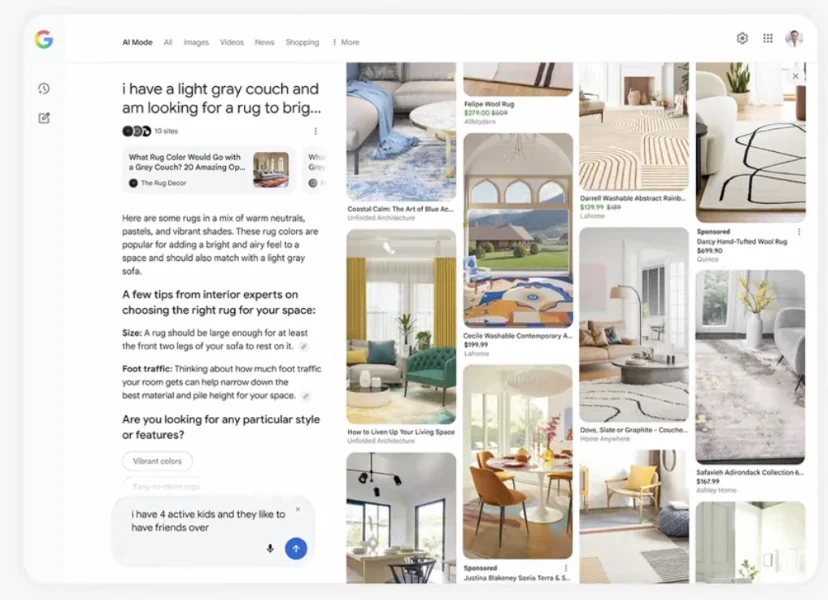
There’s also a new price tracking feature in AI Mode. Once you’ve picked the perfect rug, tap “track price” and set a buy price. The AI will notify you of price drops it finds, and when it hits your desired price, you can tap “buy for me,” and it’ll complete the purchase using your Google Wallet.
Finally, AI Mode lets you virtually try on an outfit. Remember Cher’s closet app from Clueless? It’s like that. Upload a photo of yourself, and Google’s AI will generate a custom image of you wearing your new fit, even in different poses.
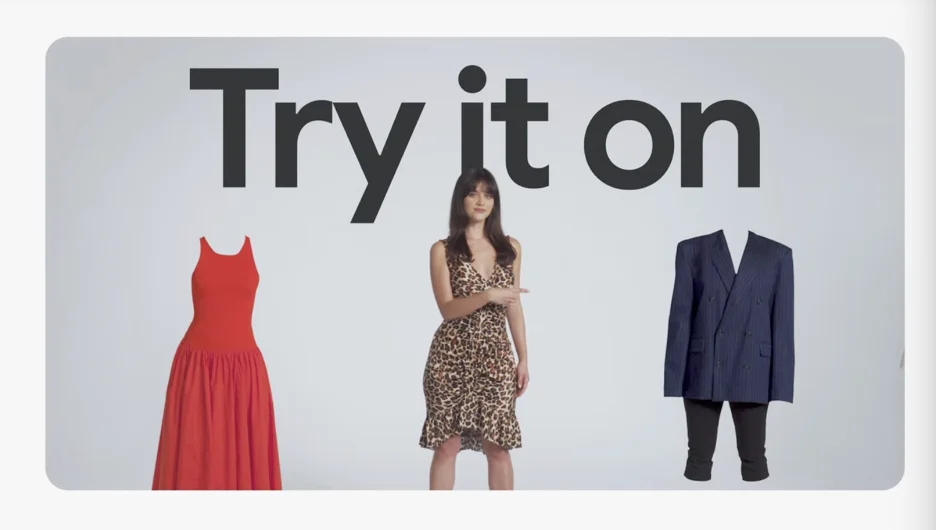
GML tends to go heavy on innovations for physical product marketers. These new agentic shopping experiences will be particularly helpful to them.

10. Marketing Advisor coming to Chrome browsers
GML closed out with a live demo of an upcoming AI agent called Marketing Advisor that’ll live right in your Chrome browser. The AI agent will help advertisers manage all sorts of marketing tasks.
For example, Marketing Advisor may suggest product promotions based on seasonality. It can review your website and troubleshoot a conversion tracking problem. It could also assist with a big, multi-site tagging job, identifying where tags are needed and even adding them with permission.
Once rolled out, Google Advisor will appear as a Chrome browser side panel and operate like other familiar conversational AI tools.
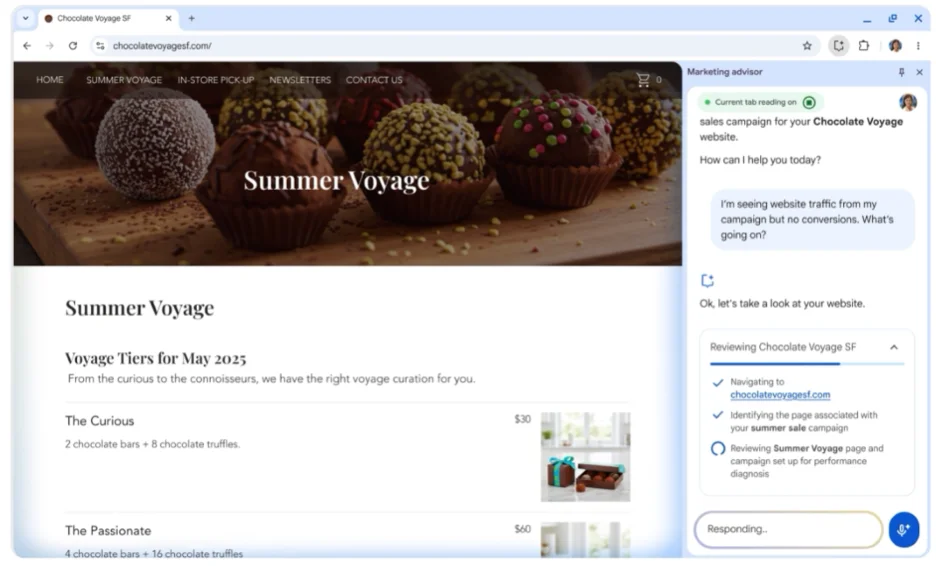
Google Marketing Live 2025 covered a lot of ground
GML 2025 lasted about 80 minutes. Take out the banter and video montages, and you’re left with less than an hour of actual product presentations. Still, the presenters crammed in a ton of announcements that’ll affect every aspect of managing your Google Ads accounts.
As expected, the focus was squarely on AI and all the ways Google continues to integrate it in different ways to make managing, measuring, and tracking campaigns easier. Of course, time will tell if they actually move the needle for most advertisers.
There’s a LOT more to unpack from this year’s Google Marketing Live. We’ll have advertising experts dig into several of the most impactful announcements and be here to help you understand what they mean for your business.


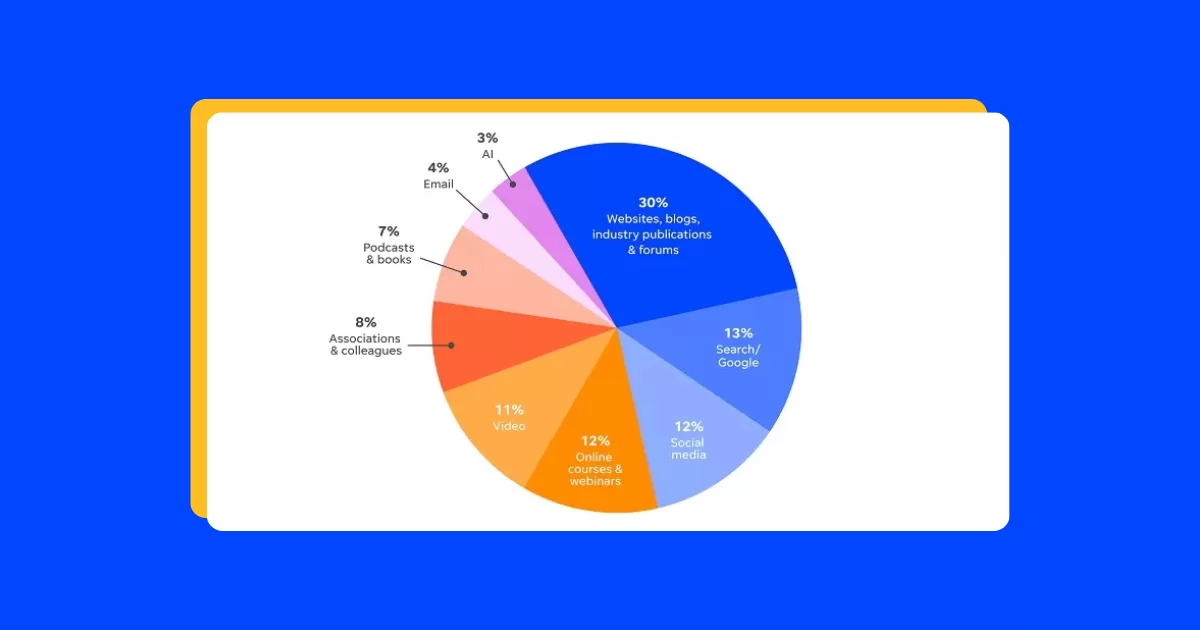

![Search Advertising Benchmarks for Your Industry [Report]](https://www.wordstream.com/wp-content/uploads/2024/04/RecRead-Guide-Google-Benchmarks.webp)


